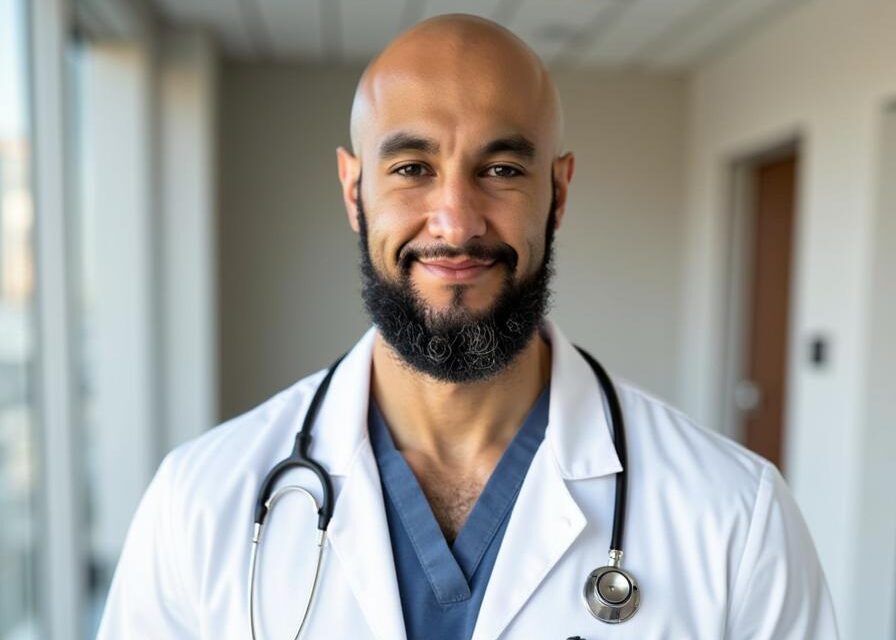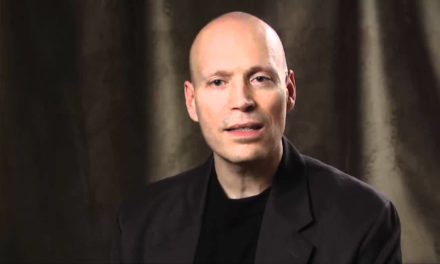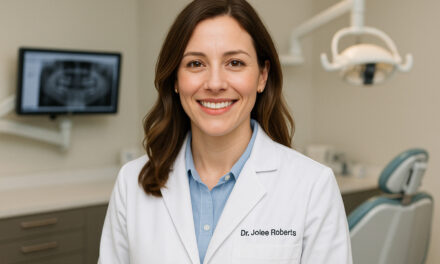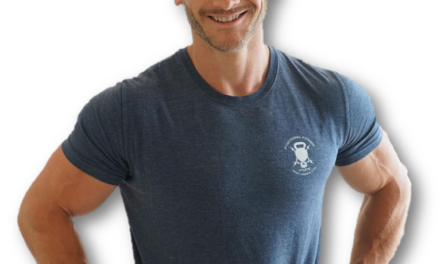Dr. Abdelrhman Maher Abo-Zed is a triple board-certified physician in Internal Medicine, Pulmonary, and Critical Care Medicine at Penn Medicine Princeton, New Jersey. A New Jersey native, he balanced collegiate football with premedical studies, developing resilience and teamwork that shaped his medical career. He earned his medical degree with high honors from Ross University School of Medicine, completed his residency at the University of Pittsburgh Medical Center, and served as Chief Fellow at Rutgers New Jersey Medical School.
Dr. Abo-Zed specializes in advanced pulmonary procedures, critical care ultrasonography, and high-pressure ICU management. A dedicated educator, he teaches ultrasonography at the largest regional course in the country and has contributed extensively to medical research, publishing in CHEST, ACG, and AASLD. He co-authored Rapid Response Events in Critical Care, a key resource for training young physicians.
Beyond medicine, he is an entrepreneur, founding Care Beyond ICU, a healthcare initiative focused on post-ICU patient recovery. Passionate about innovation, research, and mentorship, Dr. Abo-Zed strives to improve patient outcomes, advance medical education, and inspire future healthcare professionals. In his personal time, he enjoys cooking, hiking, exploring cultures, and staying active through sports and fitness.
What inspired you to pursue a career in Pulmonary and Critical Care Medicine?
From an early age, I was drawn to the idea of helping people in moments of crisis. My journey started with the influence of my parents, mentors, and the discipline instilled in me through sports. Playing collegiate football taught me resilience, teamwork, and the ability to perform under pressure—qualities that seamlessly translated into medicine. During medical school, I was particularly drawn to the ICU. The ability to make rapid, life-saving decisions while working in a multidisciplinary team fascinated me. I knew I wanted to be in an environment where my decisions had an immediate and lasting impact. Critical care, with its dynamic nature and constant advancements, felt like the perfect fit.
As a triple board-certified physician, how do you balance clinical work, research, and entrepreneurship?
Balance is a moving target, but prioritization and efficiency help me manage multiple roles. Clinically, I focus on providing the highest standard of care while mentoring younger physicians. Research allows me to contribute beyond the bedside, shaping the future of critical care through innovation. I structure my time strategically, blocking dedicated hours for writing, reviewing studies, and collaborating with research teams.
Entrepreneurship is another passion. Care Beyond ICU was born out of a need I saw in my own patients—ICU survivors struggling with long-term effects of critical illness. I balance this by integrating business development into my schedule, ensuring that it aligns with my mission of improving patient care. Ultimately, I surround myself with strong teams and trusted colleagues who share my vision, allowing me to dedicate my time where it’s needed most.
Can you describe a patient case that had a profound impact on your career?
There’s one case I’ll never forget. A middle-aged man was admitted to the ICU in severe respiratory distress. He was young and otherwise healthy, but his lungs had deteriorated rapidly. We exhausted conventional therapies, and his oxygen levels continued to plummet. It was a turning point—I had to decide whether to proceed with an advanced intervention that carried significant risks. After careful discussion with his family, we proceeded with ECMO, a life-support system that takes over heart and lung function.
It was a long and complex road, but he made a full recovery. Months later, he visited the hospital to thank the team. That moment reinforced why I chose this field. Critical care isn’t just about saving lives in the moment—it’s about giving patients back their futures. That case shaped how I approach decision-making, risk assessment, and most importantly, patient-centered care.
You’ve been recognized for your contributions to medical education. What drives your passion for teaching?
Teaching is an essential part of my identity as a physician. I remember being a medical student, feeling overwhelmed by the complexity of critical care. Now, I aim to break those barriers for others. Education is about more than transferring knowledge—it’s about shaping mindsets, fostering confidence, and ensuring the next generation of physicians is even better than the last.
I’ve had the privilege of teaching ultrasonography at the largest regional course in the country, collaborating with pioneers like Dr. Paul Mayo. Seeing fellows apply these skills in real-time, knowing they’ll use them to save lives, is incredibly rewarding. Medical education is an investment in the future, and I take pride in being part of that process.
What motivated you to launch Care Beyond ICU, and what challenges did you face in bringing it to life?
The inspiration came directly from my patients. I saw many ICU survivors struggling with long-term complications—physical deconditioning, cognitive dysfunction, emotional distress—yet there was little structured support available after discharge. I realized there was a massive gap in post-ICU care. That’s when Care Beyond ICU was born.
The biggest challenge was navigating the healthcare landscape. Starting a business in medicine isn’t just about having a great idea—it’s about proving its value, gaining institutional buy-in, and ensuring sustainability. I had to combine my clinical expertise with a business mindset, focusing on patient outcomes while building strong partnerships. It wasn’t easy, but the positive impact on patients made every challenge worthwhile.
How did playing college football shape your approach to medicine and leadership?
Football taught me lessons that no classroom ever could. Discipline, adaptability, and performing under pressure are all essential in critical care. Just like on the field, in the ICU, you have to trust your team, communicate clearly, and make split-second decisions.
Leadership was another key takeaway. As a quarterback, I learned how to lead under high-stress conditions while keeping morale high. In medicine, those same principles apply—whether it’s leading a rapid response team, mentoring trainees, or advocating for systemic changes. The biggest lesson football taught me was resilience. Setbacks are inevitable, whether in sports, medicine, or business, but what matters is how you respond.
Your research spans multiple areas, from ICU physical therapy to healthcare disparities. What research are you most passionate about?
Healthcare disparities are a major area of focus for me. During my training, I saw firsthand how socioeconomic status, language barriers, and systemic inequalities impact patient outcomes. Critical care should be about providing the best possible treatment regardless of background, but that’s not always the reality.
I’ve worked on projects examining disparities in access to post-ICU rehabilitation and found significant gaps. This research drives my advocacy for more equitable care models. Another passion is advancing ICU rehabilitation—getting patients moving earlier, addressing long-term recovery, and improving their quality of life. These are the areas where research can truly change lives, and I’m committed to pushing them forward.
What advice would you give to medical students or young doctors interested in critical care?
First and foremost, develop a strong foundation in internal medicine. Critical care requires deep knowledge across multiple specialties—cardiology, pulmonology, infectious disease, and beyond.
Second, seek out mentors who challenge you. The best learning happens outside of comfort zones. Shadow ICU attendings, ask tough questions, and take on complex cases.
Third, resilience is key. This field is emotionally and physically demanding, but remember why you started. Find ways to decompress, whether it’s exercise, hobbies, or time with family. Burnout is real, and self-care isn’t a luxury—it’s a necessity.
Lastly, never stop learning. Medicine is constantly evolving, and the best intensivists stay curious, humble, and open to new advancements.
Outside of medicine, what brings you the most joy?
Spending time with my wife, family, and friends is my greatest joy. They keep me grounded and remind me that life is about more than work. Cooking is another passion—I find it incredibly therapeutic, especially experimenting with different cuisines. It’s a creative outlet that allows me to step away from the high-stakes nature of medicine.
I also love staying active, whether it’s hiking, sports, or the gym. Movement has always been a big part of my life, and I see it as a way to maintain both physical and mental well-being. Exploring different cultures through travel is another passion. Seeing how people live, what they value, and how they approach life broadens my perspective. These experiences shape who I am beyond medicine.
How do you define success, and has that definition evolved over time?
Success is dynamic—it changes as you grow. Early in my career, I equated success with milestones: earning board certifications, completing training, publishing research. But over time, my perspective shifted.
Now, I define success by the impact I make. If I improve a patient’s life, mentor a physician who goes on to do great things, or create a healthcare solution that changes outcomes, that’s success. It’s not about titles or accolades—it’s about contribution.
Most importantly, success includes personal fulfillment. Being present for my family, maintaining my health, and pursuing passions outside of medicine are just as important as professional achievements. True success, to me, is finding that balance.




